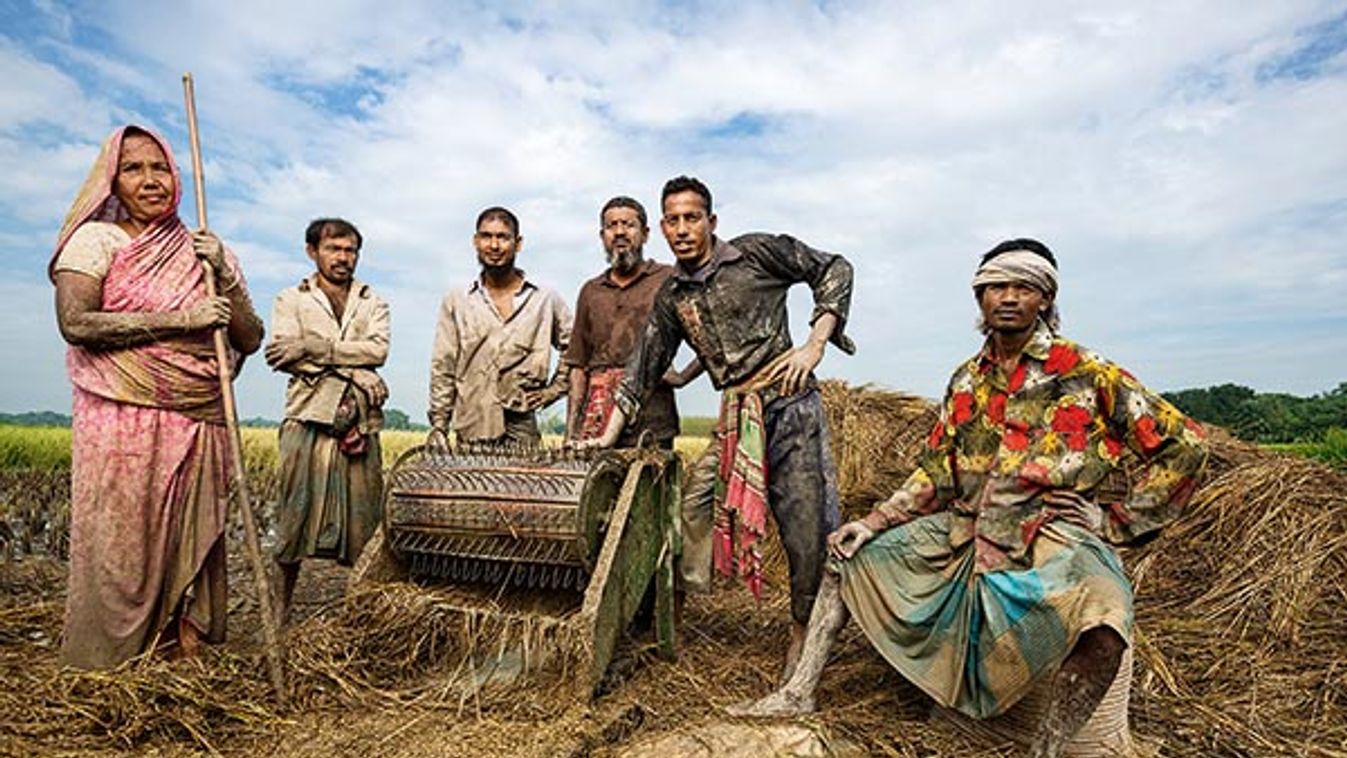
Ilyen állapotban van a kórházba került Dévényi Tibor
origo.hu


Július volt a harmadik egymást követő hónap, amikor a globális élelmiszerárak emelkedtek, főképp a gabonafélék, cukor és tejtermékek magasabb jegyzése okán, állapította meg az ENSZ Élelmezésügyi és Mezőgazdasági Szervezete (FAO).
Kép: Rice threshing in the fields of the village of Jogahat, Chunamonhathi, Jessore, Bangladesh. The men are using a foot powered thresher to beat the rice off the still-wet rice plants. Rice harvested in the field will be carried back to the village where it will be cleaned and dried. The woman sweeping rice up is Shukhjan Begum. The two guys with rice sacks on their heads are: Muhammed Dobibar Rahman (Red printed shirt) Jinnat (white shirt) The others at the machine are: Robiul Islam, Joshim, Tobiban Rahman and Anisur Rahman. Contact for Agricultural Information: Timothy Russell Email: [email protected] Phone: +880 2 989 8011 Mobile: 01766931971 IRRI Bangladesh House 9, Road 2/2 Banani, Dhaka 1213 Bangladesh Other IRRI: Bushra Rahman Manager, Communications and Documentation IRRI Bangladesh Office House 9, Road 2/2 Banani, Dhaka 1213 Bangladesh Phone: +880 2 989 8011 +88 2 988 6608 Ext. 104 Mobile: +880 1911 746 250 Email: [email protected] Field Locations for IRRI: A.K.M. Ferdous Email : [email protected] Cell: +8801715026458 General Contact for WorldFish: Afrina Choudhury Portfolio Support Coordinator/ Gender Specialist T: +880-2- 8813250 M: +88 017 154 893 418 House 22B, Rd 7, Block F, Banani F: +880-2-8811151 1213 Dhaka, Bangladesh skype: afrina.choudhury www.worldfishcenter.org Field Locations for WorldFish: Ashoke Kumar Sarker [email protected] Cell: +8801711375573 , Fotó: Jim Richardson

A FAO élelmiszerár-index, hónapról hónapra nyomon követve a nemzetközileg legfontosabb öt élelmiszer-termékcsoport azok kereskedelmi értékével súlyozott árváltozását, 2015 januárja óta nem volt ilyen magasan: 2,3%-kal haladja meg a júniusi és 10%-kal a tavaly ilyenkori értékét.
Május óta töretlen az emelkedés a FAO gabonaár indexében, amely 5%-kal nőtt júliusban. A búza különösen magas áron cserélt gazdát a nemzetközi piacokon, mivel a forró és száraz időjárás keresztbe tett a tavaszi vetésnek az észak-amerikai kontinensen. A rizsnél szezonális hiány idézte ugyanezt elő. Közben a kukorica ára stabil maradt. A másik éllovas a cukor volt, a szintén 5% áremelkedésével – amire idén még nem volt példa. Szakértők a brazil reál felértékelődésével magyarázzák a trendfordulást. Azonban még így is nagyon alacsonyan, tavalyhoz képest 26%-kal van lejjebb a cukor ára. Több mint 3%-ot erősödött a tejtermékek ára, a vaj, sajtok és a teljes tejpor drágulása miatt. A szűkös exportkészletek miatt a vaj ára nagyot ugrott, ezt a mozgást a többi tejtermék nem követte. A FAO által mért növényiolaj-árak 1%-kal csökkentek és ezzel az elmúlt egy év legalacsonyabb szintjén zártak júliusban. A pálmaolaj termelési kilátásai jónak mondhatók Délkelet-Ázsiában, közben a kereslet globálisan nem kiugró. A húsár-index nem változott érdemben, mivel a birkahús áremelkedését ellensúlyozta a marha-, sertés- és szárnyas hús árának csökkenése.


origo.hu


borsonline.hu


life.hu


hirtv.hu


haon.hu


origo.hu


mindmegette.hu


vg.hu


origo.hu


origo.hu


origo.hu


origo.hu
